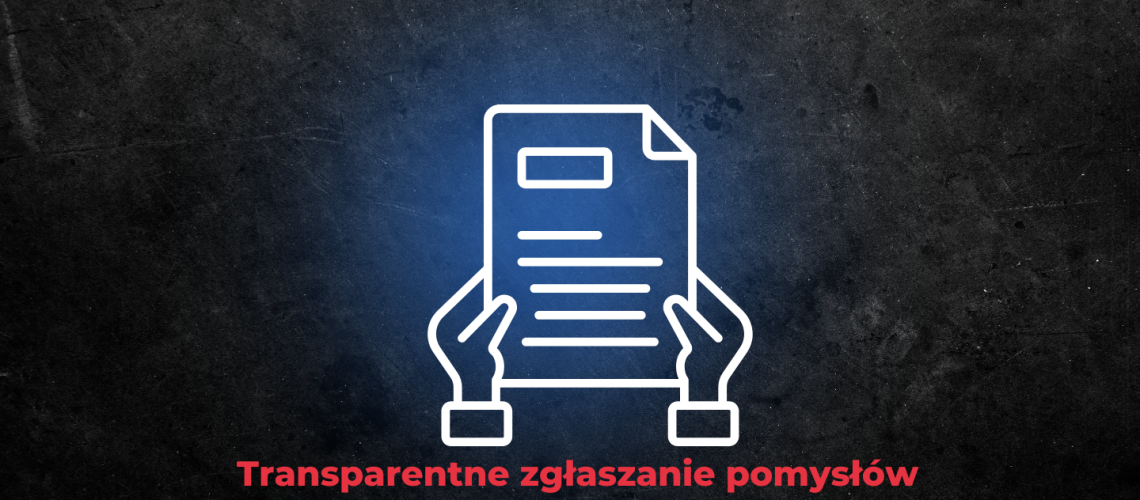In a world where innovation is a key element of competitive advantage, companies are constantly looking for effective methods to stimulate creativity among employees. One solution that is gaining popularity is the introduction of idea submission systems based on a culture of transparency and accountability. But does this actually contribute to more innovation? What are the benefits and challenges of such an approach? In this article, we will look at this issue from different perspectives, based on recent research and experiences of companies that have successfully implemented such solutions.
Table of contents
- Psychological basis of transparency in the innovation process
- The impact of a transparent culture on the quantity and quality of ideas submitted
- Organizational culture vs. transparent reporting
- Implementation of the transparent notification system in practice
- Sherlock Waste - a modern solution for companies seeking innovation
- Challenges and benefits of transparency approach
- Conclusions and recommendations
Psychological basis of transparency in the innovation process
While fear of evaluation can inhibit creativity, research in organizational psychology indicates that a culture of openness and transparency, when properly built, becomes a powerful stimulator of innovation. When employees see that their ideas are treated with respect and that the organization values their involvement, intrinsic motivation to actively participate in improvement processes increases.
Research by Stanford University has shown that in organizations with a high level of transparency and a culture of accountability, employees feel a greater attachment to their ideas, which translates into higher quality and refinement. Moreover, transparency builds trust, which is the foundation for creative collaboration.
Professor Teresa Amabile of Harvard Business School stresses that recognizing contributions and publicly valuing innovation are key motivators for sharing ideas and taking responsibility for implementing them.
The impact of a transparent culture on the quantity and quality of ideas submitted
An analysis conducted by McKinsey & Company in 2023 on a group of 150 companies showed that companies that focus on transparency and accountability in their innovation processes achieve not only a higher number of ideas submitted, but also a higher percentage of those that actually bring business value.
Unlike anonymous systems, which can generate a large number of ideas of varying quality, transparent submission systems foster more thoughtful proposals. When employees know that their name will be associated with an idea, they naturally put more effort into developing and justifying it.
Research by the MIT Sloan School of Management suggests that transparency in the innovation process also fosters collaboration and idea development - employees are more likely to build on colleagues' proposals when they can see who authored them, leading to synergies and the development of more comprehensive solutions.
Organizational culture vs. transparent reporting
The success of transparent idea submission systems is strongly linked to organizational culture. In environments where innovation is valued and experimentation is seen as a value, openness becomes a natural part of improvement processes.
Professor Amy Edmondson of Harvard Business School introduced the concept of "psychological safety" as the foundation of an innovative culture. In organizations with a high level of psychological safety, employees are not afraid to express their ideas and take responsibility for them because they know that even if an idea fails, they will not be punished for it.
Transparency in reporting ideas can be a key element in building such a culture, especially when it is part of a broader continuous improvement strategy that promotes learning from mistakes and celebrates successes.
Implementation of the transparent notification system in practice
Successful implementation of a transparent notification system requires a thoughtful approach. Key aspects include:
- Clear evaluation criteria - employees must understand how their ideas are evaluated
- Quick feedback - constructive feedback motivates further improvement of ideas
- Visibility of effects - showing which ideas have been implemented and what results they have produced
- Public recognition - acknowledging authors of valuable ideas builds a culture of innovation
- Accessibility and intuitiveness of the system - overly complicated procedures are a barrier to submissions
Practice shows that the most effective implementations rely on digital tools that combine ease of use with advanced capabilities for analyzing and managing submissions. Traditional methods, such as paper forms or spreadsheets, do not ensure effective management of the innovation process or build a culture of transparency.
Sherlock Waste - a modern solution for companies seeking innovation
In response to the needs of companies seeking to increase innovation through employee engagement, the Sherlock Waste tool has appeared on the market. It is a comprehensive solution that supports the building of a culture of continuous improvement, with a special focus on transparency, accountability and a culture of improvement.
Sherlock Waste is distinguished by several key features:
- Culture of transparency - the system promotes open sharing of ideas and identification of areas for improvement
- Building accountability - employees are encouraged to take responsibility for the ideas they submit and participate in their implementation
- Intuitive interface - a simple submission process eliminates technical barriers, encouraging all employees to actively participate
- Advanced analytics - the tool allows tracking both quantitative and qualitative aspects of the innovation process
- Comprehensive management of the idea lifecycle - from submission to evaluation to implementation and measurement of results
Importantly, Sherlock Waste goes beyond just reporting ideas. Employees can also report defects, downtime and processes in need of improvement, creating a comprehensive ecosystem for identifying areas for optimization. The system fosters a culture of continuous improvement, where every employee feels responsible for the quality of processes and has the tools to actively contribute to their improvement.
Companies that have replaced traditional methods (Excel, paper forms) with the Sherlock Waste tool are not only seeing an increase in the number of ideas submitted, but more importantly a higher quality of these proposals and greater employee involvement in their implementation. The transparency of the process also allows better use of the knowledge and experience of the entire organization, when employees see the ideas of their colleagues and can develop them.
Challenges and benefits of transparency approach
Transparent idea submission brings both challenges and significant benefits:
Challenges:
- Initial resistance - in organizations without a tradition of openness, employees may initially fear evaluation
- The need to build psychological safety - transparency requires an environment in which failure is treated as a learning opportunity
- Managing expectations - not all ideas can be implemented, which requires skillful communication
Benefits:
- Higher quality of ideas - awareness of transparency promotes more thoughtful proposals
- Greater involvement - authors of ideas naturally get involved in their implementation
- Knowledge synergy - transparency allows different departments to collaborate and develop ideas
- Building a culture of innovation - public recognition of innovators reinforces a culture of continuous improvement
- Greater accountability - employees feel ownership of processes and actively seek to improve them
Conclusions and recommendations
Research and company experience clearly indicate that transparent idea submission, if properly implemented and managed, can significantly increase the number and quality of innovations in an organization. Key findings:
- Transparency builds a culture of accountability and engagement that fosters quality innovation
- An idea submission system alone is not enough - it must be part of a broader strategy to build a culture of continuous improvement
- Prompt and substantive feedback and visibility of the effects of implemented ideas are crucial
- Modern digital tools, such as Sherlock Waste, significantly increase the efficiency of the process compared to traditional methods
- Public recognition of authors of valuable ideas strengthens the culture of innovation and encourages further involvement
For companies that are considering introducing or improving idea submission systems, recommended:
- Conduct an audit of the current organizational culture and identify potential barriers to innovation
- Choosing a modern, dedicated tool instead of improvised solutions
- Ensure transparency in the process of evaluating and implementing ideas
- Regular communication of the results and successes achieved with the ideas submitted
- Systematic analysis of data on the number, quality and impact of ideas submitted
- Investing in building psychological safety as the foundation of a culture of transparency
In an era of digital transformation, where innovation is a key factor for success, implementing an effective system for the transparent submission of ideas is no longer an option, but a necessity for companies that want to remain competitive and fully utilize the potential of their employees.
👉 Schedule a meeting now and start a revolution of innovation in your organization!






